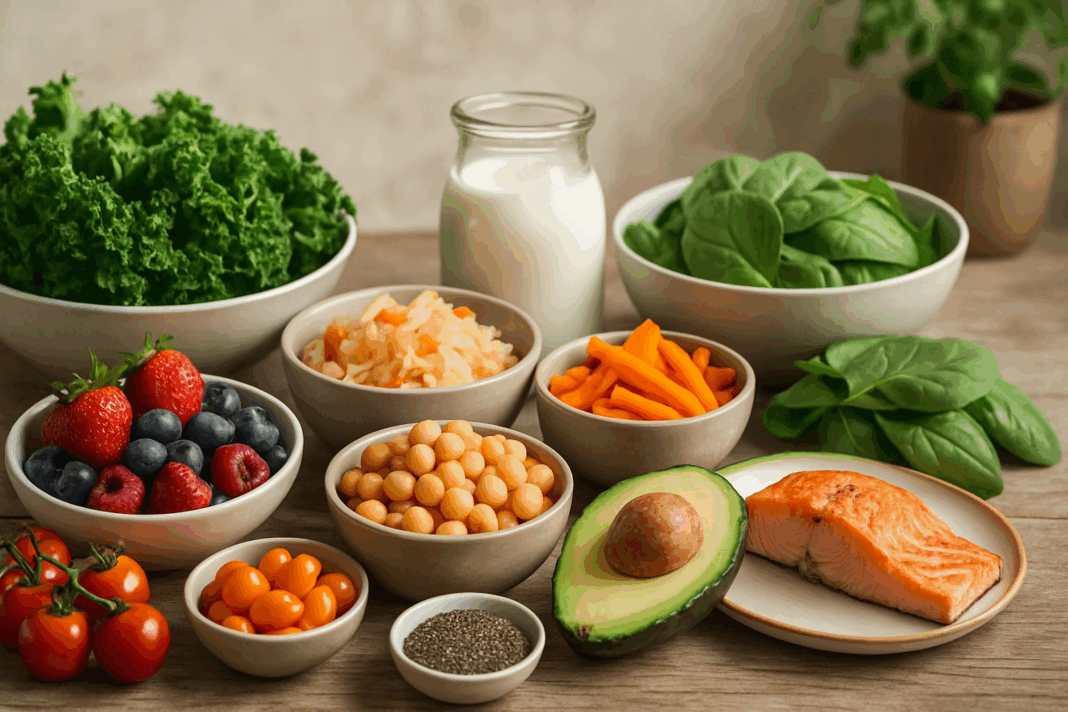Maintaining a healthy gut is one of the most important aspects of overall well-being, yet it is often overlooked in favor of more visible health issues. However, the gut is integral to almost every system in the body, affecting everything from immune function to mental health. The connection between diet and gut health has gained significant attention in recent years, and research continues to uncover the profound impact that food can have on our digestive system. This guide focuses on the importance of a diet rich in gut-boosting foods and explores how a holistic approach can naturally support digestion. A well-balanced, gut-friendly diet provides the essential nutrients that promote gut health, foster a thriving microbiome, and help reduce the risk of various digestive disorders.
You may also like: The Ultimate Guide to Gut Healthy Meals: Best Meals for Gut Health and Nourishing Recipes You’ll Love
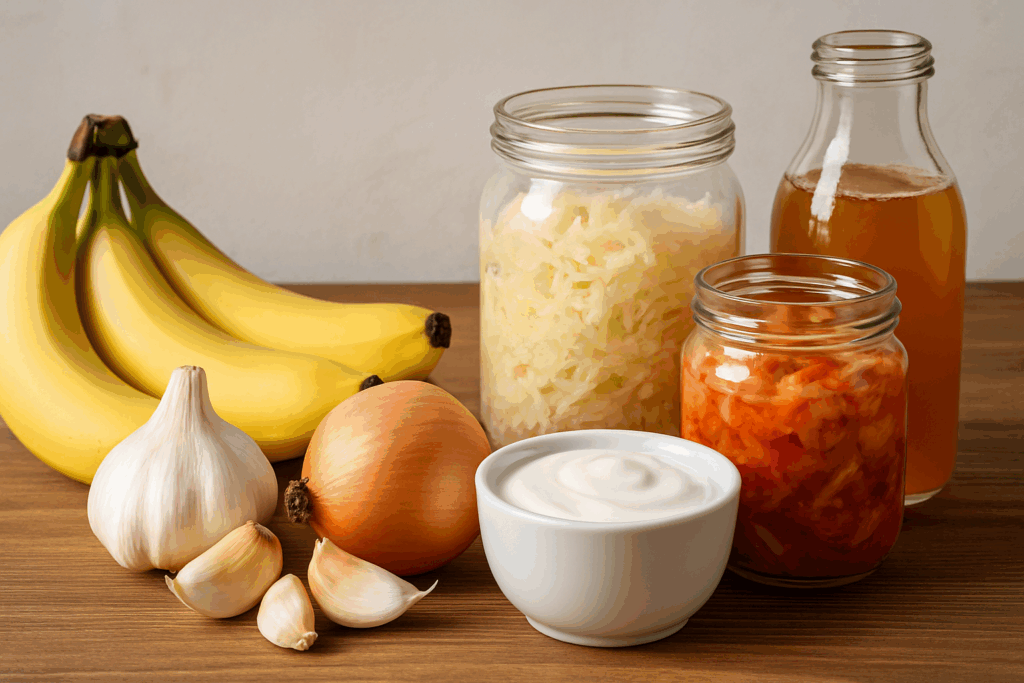
The Role of a Diet Rich in Gut-Boosting Foods
The phrase “diet rich” refers to consuming a variety of nutrient-dense foods that are packed with fiber, vitamins, minerals, and other bioactive compounds that support digestive health. A diet rich in gut-boosting foods includes whole plant-based foods, such as fruits, vegetables, legumes, nuts, seeds, and fermented foods, as well as healthy fats from sources like olive oil and avocado. These foods nourish the beneficial bacteria in the gut, ensuring they thrive and perform their essential functions in the digestive system. This balanced approach not only supports digestive health but also promotes a stronger immune system, improved nutrient absorption, and a more stable mood.
Incorporating foods like fiber-rich fruits and vegetables, whole grains, and fermented foods provides the gut with prebiotics and probiotics—key elements in maintaining a healthy balance of gut bacteria. For instance, foods like garlic, onions, and bananas are rich in prebiotics, which serve as food for beneficial gut bacteria. Meanwhile, fermented foods like yogurt, kefir, sauerkraut, and kimchi introduce probiotics, which are live beneficial bacteria that help repopulate the gut.
Moreover, a diet rich in gut-boosting foods can significantly influence the gut-brain axis—the complex communication network between the gut and the brain. Research has shown that a healthy gut microbiome can have a positive effect on mental health, including mood regulation and stress management. Therefore, what we eat not only affects our digestive system but also plays a pivotal role in how we feel and function daily.
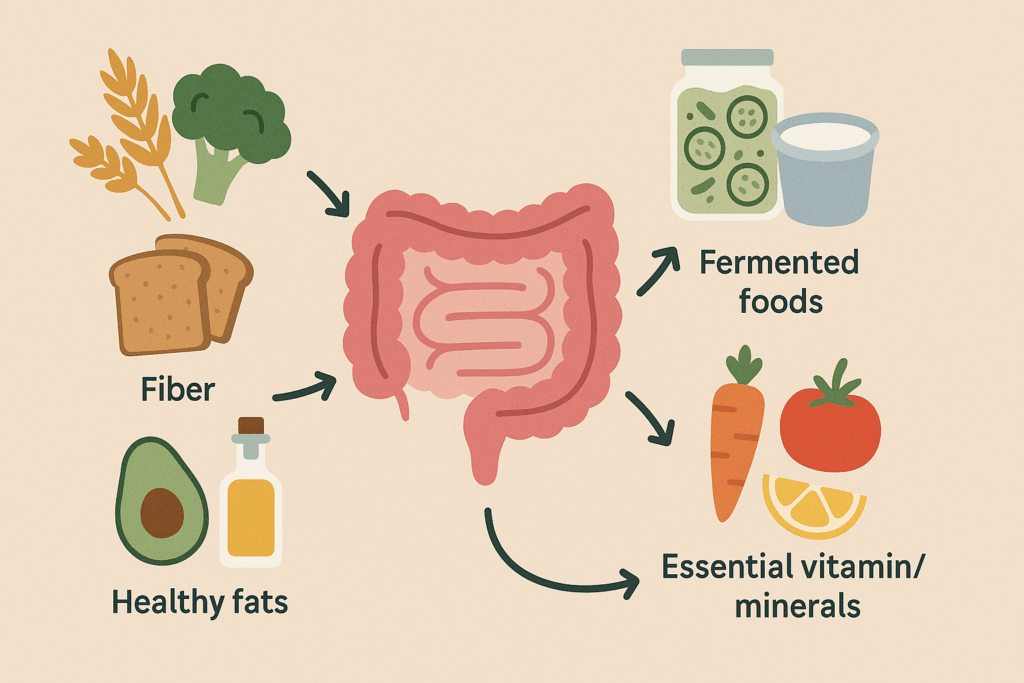
Key Components of a Diet Rich in Gut-Boosting Foods
A balanced diet rich in gut-boosting foods involves several key components that work synergistically to support digestive function. These include fiber, healthy fats, fermented foods, and specific vitamins and minerals that play a direct role in gut health.
Fiber: Fiber is one of the most crucial nutrients for gut health. It helps regulate bowel movements, prevent constipation, and supports the growth of beneficial bacteria in the gut. A high-fiber diet, rich in both soluble and insoluble fiber, helps maintain digestive health by promoting regularity and providing nourishment for gut bacteria. Foods like fruits, vegetables, whole grains, legumes, and seeds are excellent sources of fiber that can contribute to a healthy gut microbiome.
Fermented Foods: Fermented foods, such as kimchi, sauerkraut, yogurt, kefir, and kombucha, are packed with probiotics—live microorganisms that support a healthy gut environment. These foods help replenish beneficial bacteria, especially after the gut has been compromised by antibiotics, illness, or a poor diet. The regular consumption of fermented foods has been linked to improved gut health, enhanced immunity, and better digestion.
Healthy Fats: Healthy fats, such as those found in avocados, olive oil, nuts, and seeds, are essential for maintaining the integrity of the intestinal lining and supporting the absorption of fat-soluble vitamins. These fats also help reduce inflammation in the gut, which is critical for maintaining overall digestive health. Omega-3 fatty acids, found in fatty fish like salmon, chia seeds, and flaxseeds, are particularly beneficial for reducing gut inflammation and promoting a balanced microbiome.
Vitamins and Minerals: Certain vitamins and minerals are essential for gut health, including Vitamin D, magnesium, and zinc. Vitamin D helps regulate immune function and is critical for maintaining a healthy gut barrier, while magnesium supports smooth muscle function in the digestive tract, ensuring proper movement of food through the intestines. Zinc, on the other hand, plays a key role in maintaining the integrity of the gut lining and supporting immune function.
By focusing on these key components, a diet rich in gut-boosting foods not only nourishes the digestive system but also provides lasting benefits to overall health and well-being. In the following sections, we will explore how to incorporate these foods into your diet and why they are essential for maintaining a balanced and healthy gut.

Benefits of a Holistic Approach to Gut Health
A holistic approach to gut health goes beyond simply eating the right foods. It involves integrating various lifestyle practices that support the overall functioning of the digestive system, creating a healthy environment for beneficial gut bacteria to thrive. This approach encompasses not only nutrition but also stress management, physical activity, and mindful eating practices.
Stress Management: Chronic stress can significantly disrupt gut health by affecting the gut-brain axis. High levels of stress can lead to gut permeability (also known as “leaky gut”), inflammation, and imbalances in the microbiome. Therefore, managing stress is an essential part of maintaining digestive health. Practices like yoga, meditation, deep breathing exercises, and regular physical activity can help reduce stress and promote a more balanced gut environment.
Mindful Eating: Mindful eating involves paying attention to the eating experience—savoring each bite, eating slowly, and listening to your body’s hunger cues. This practice helps prevent overeating, improves digestion, and reduces the risk of bloating and discomfort. By focusing on the sensory experience of eating, you can improve your digestion and make more conscious choices about the foods that benefit your gut.
Regular Physical Activity: Exercise is beneficial for the digestive system as it helps promote regular bowel movements and improves gut motility. It also supports the health of the microbiome by increasing the diversity of gut bacteria. Even moderate physical activity, such as walking or yoga, can have positive effects on gut health and overall digestion.
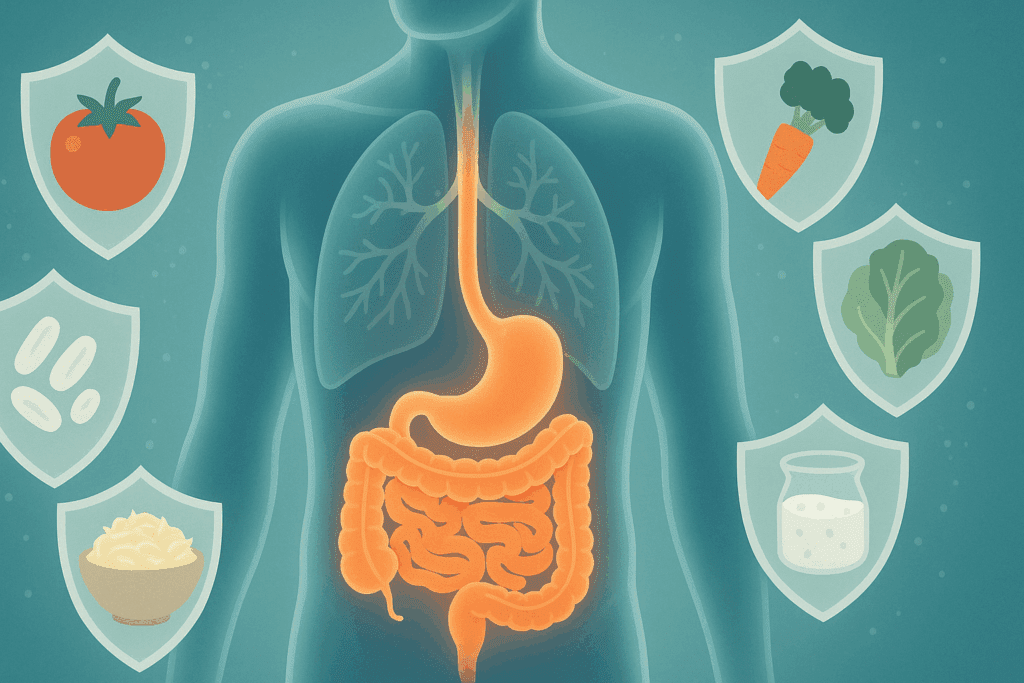
How a Diet Rich in Gut-Boosting Foods Supports Immune Health
One of the most significant yet often overlooked benefits of a diet rich in gut-boosting foods is its profound impact on immune health. The gut is home to approximately 70% of the body’s immune cells, making it the largest immune organ in the body. The health of the gut microbiome directly influences immune function by training the immune system to recognize harmful pathogens while tolerating harmless substances, such as food particles and beneficial bacteria. A diet rich in prebiotics, probiotics, fiber, and polyphenols helps support the gut’s immune cells and enhance the gut-associated lymphoid tissue (GALT), a critical component of the immune system.
By incorporating a variety of gut-friendly foods, you ensure that your immune system receives the nutrients needed to function properly. For example, foods like berries, green tea, and turmeric are rich in polyphenols—natural compounds that help reduce inflammation and support immune function. Fermented foods, as mentioned earlier, introduce beneficial bacteria that can modulate immune responses, reducing the risk of autoimmune disorders and enhancing overall immune resilience. Maintaining a balanced, gut-healthy diet is, therefore, a key strategy in supporting the body’s defense system and preventing illness.

Practical Tips for Incorporating Gut-Boosting Foods into Your Diet
While the science behind gut health is fascinating, the real challenge for many people lies in incorporating gut-boosting foods into their everyday diet. Fortunately, there are simple and practical ways to make these foods a part of your routine. Start by gradually adding fiber-rich fruits and vegetables to your meals, aiming for a variety of colors and types to ensure you get a broad spectrum of nutrients. Leafy greens, cruciferous vegetables, and root vegetables are excellent sources of fiber and vitamins that support digestion.
Additionally, experiment with fermented foods to introduce beneficial probiotics into your diet. If you’re new to fermented foods, start with small servings of yogurt or kefir, and gradually increase your intake as your gut adapts. Adding a tablespoon of sauerkraut or kimchi to your meals a few times a week can help introduce more probiotics to your system, enhancing digestion and overall gut health. Finally, be sure to focus on healthy fats like those found in avocados, olive oil, and nuts, which are not only great for gut health but also provide essential nutrients for overall wellness.
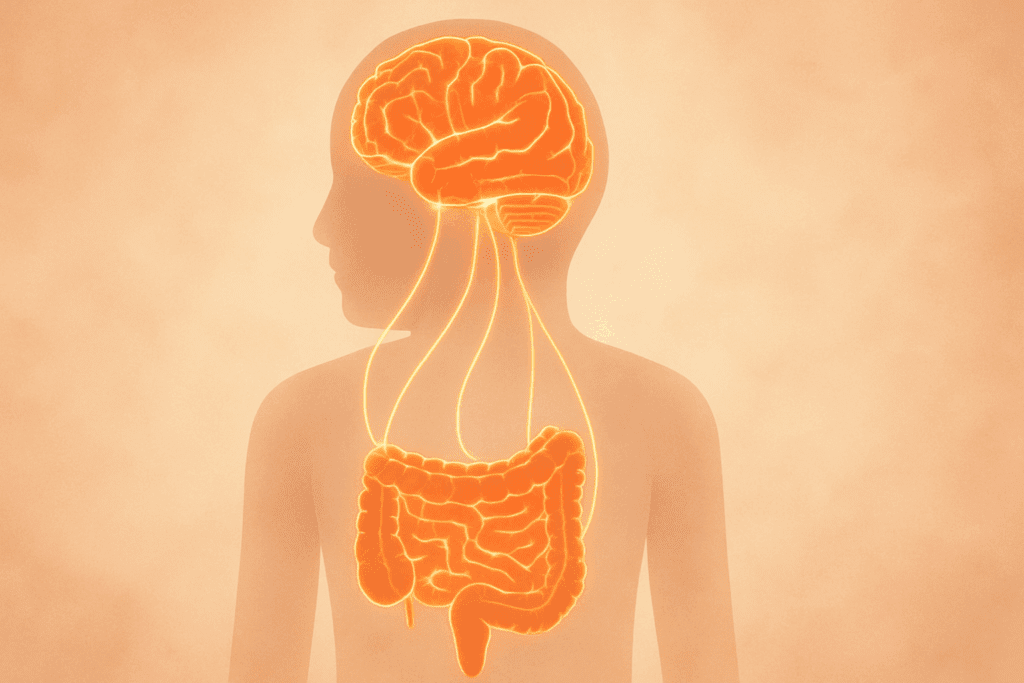
Frequently Asked Questions (FAQ) – Diet Rich in Gut-Boosting Foods
1. What Are Rich Foods, and How Do They Affect My Gut Health?
“Rich foods” refer to those that are dense in essential nutrients like fiber, vitamins, minerals, and beneficial compounds that promote bodily functions. When considering a diet rich in gut-boosting foods, it means focusing on nutrient-dense ingredients that support digestive processes and nourish the gut microbiome. These foods include fruits, vegetables, whole grains, and fermented products, which not only provide fiber but also contain antioxidants, polyphenols, and probiotics. A balanced diet rich in gut-supporting foods can aid digestion, regulate gut bacteria, and improve overall health by fostering a well-functioning immune system. Including a variety of these rich foods ensures that your gut bacteria thrive, reducing the risk of digestive issues like bloating and constipation.
2. How Can a Diet Rich in Gut-Boosting Foods Improve Immunity?
A diet rich in gut-boosting foods plays a significant role in enhancing the body’s immune function. The gut houses a large portion of the immune system, and a healthy microbiome supports the development and function of immune cells. When we consume foods rich in fiber, such as whole grains, legumes, and vegetables, we provide the necessary fuel for beneficial bacteria. These bacteria, in turn, help regulate immune responses, balancing inflammation and helping the body fend off harmful pathogens. Fermented foods like kimchi and yogurt are particularly beneficial for boosting immunity, as they contain probiotics that contribute to a balanced immune response, reducing the likelihood of infections and autoimmune conditions.
3. Can a Diet Rich in Gut-Boosting Foods Help Manage Stress?
Yes, a diet rich in gut-boosting foods can have a profound impact on stress management. Research has shown a strong connection between the gut microbiome and the brain, known as the gut-brain axis. Consuming a variety of nutrient-dense foods can support gut health, which in turn may regulate mood and reduce the body’s stress response. Foods rich in omega-3 fatty acids, such as salmon and flaxseeds, have been found to reduce inflammation in the gut, contributing to a more balanced emotional state. Additionally, magnesium-rich foods, like leafy greens and nuts, help regulate stress hormones and promote relaxation. A diet that nourishes the gut can therefore be a powerful tool in managing daily stress levels and enhancing emotional resilience.
4. How Do Prebiotics and Probiotics Contribute to Gut Health?
Prebiotics and probiotics are two key components in a diet rich in gut-boosting foods. Prebiotics are fibers and compounds found in foods like garlic, onions, and bananas that serve as food for beneficial gut bacteria. These bacteria, in turn, help digest food more efficiently and prevent the overgrowth of harmful microbes. Probiotics, on the other hand, are live beneficial microorganisms found in fermented foods like yogurt, kefir, and sauerkraut. These probiotics help replenish the gut with good bacteria, improving digestion and promoting overall gut health. A balance of both prebiotics and probiotics in the diet is essential for maintaining a healthy gut microbiome and supporting optimal digestion and immune function.
5. What Are Some Easy Ways to Incorporate a Diet Rich in Gut-Boosting Foods into My Daily Routine?
Incorporating a diet rich in gut-boosting foods into your daily routine can be both simple and enjoyable. Start by adding fiber-rich fruits and vegetables, like leafy greens, berries, and carrots, to every meal. Try swapping refined grains for whole grains such as quinoa, brown rice, or oats to increase your fiber intake. Include fermented foods like a spoonful of kimchi with lunch or a serving of kefir with breakfast to support a healthy microbiome. It’s also helpful to snack on nuts, seeds, and yogurt throughout the day for an easy boost of healthy fats and probiotics. Lastly, remember to drink plenty of water to keep things moving through your digestive system.
6. How Does a Diet Rich in Gut-Boosting Foods Affect Mental Health?
A diet rich in gut-boosting foods does more than improve digestion; it can also significantly enhance mental well-being. Research has revealed that the gut microbiome plays a direct role in regulating the production of neurotransmitters like serotonin, which affects mood and behavior. Fermented foods, rich in probiotics, help maintain a healthy gut microbiome, which can have a positive impact on mood and cognitive function. Furthermore, foods rich in omega-3 fatty acids, like walnuts and chia seeds, have been shown to support brain health by reducing inflammation and promoting neurogenesis. By supporting gut health, you can also boost your mental clarity and emotional stability.
7. Are There Any Specific Foods I Should Avoid When Trying to Maintain a Diet Rich in Gut-Boosting Foods?
While focusing on a diet rich in gut-boosting foods, it’s also essential to limit or avoid certain foods that can harm gut health. Processed foods, sugary snacks, and artificial sweeteners can disrupt the gut microbiome by feeding harmful bacteria and yeast. High-fat, low-fiber diets, which are often found in fast food and fried foods, can also lead to gut imbalances and inflammation. Additionally, excessive alcohol consumption can damage the intestinal lining and alter gut bacteria. To support digestive health, it’s best to minimize these foods and focus on nutrient-dense, whole foods that nourish your microbiome.
8. Can a Diet Rich in Gut-Boosting Foods Help with Digestive Disorders Like IBS or Bloating?
A diet rich in gut-boosting foods can play a crucial role in managing digestive disorders like IBS (irritable bowel syndrome) and bloating. Many of these conditions are linked to an imbalance in gut bacteria, and a diet rich in fiber, prebiotics, and probiotics can help restore balance. Fiber from fruits, vegetables, and whole grains helps regulate bowel movements and prevent constipation, which can exacerbate IBS symptoms. Additionally, fermented foods like yogurt and kimchi introduce probiotics that help soothe inflammation in the gut, improving digestion. However, it’s important to work with a healthcare professional to determine specific food triggers, as some high-fiber foods may aggravate symptoms in sensitive individuals.
9. How Does a Diet Rich in Gut-Boosting Foods Support Healthy Aging?
A diet rich in gut-boosting foods contributes significantly to healthy aging by maintaining a well-balanced microbiome throughout life. The gut microbiome plays an essential role in nutrient absorption, immune function, and inflammation regulation—factors that are crucial for healthy aging. As we age, our gut bacteria can become less diverse, which can lead to digestive issues and a weakened immune system. A diet rich in fiber, probiotics, and polyphenols supports gut health, helps reduce chronic inflammation, and improves nutrient absorption. This, in turn, may reduce the risk of age-related diseases such as cardiovascular disease, diabetes, and neurodegenerative conditions like Alzheimer’s.
10. How Quickly Can I See the Benefits of a Diet Rich in Gut-Boosting Foods?
The timeline for seeing the benefits of a diet rich in gut-boosting foods varies depending on the individual and the condition being addressed. Generally, improvements in digestion, such as reduced bloating, more regular bowel movements, and better nutrient absorption, can be noticed within a few days to a week. For mental health benefits, including improved mood and reduced anxiety, it may take a few weeks to a couple of months, as the gut microbiome gradually adjusts to the new diet. Long-term benefits, such as enhanced immune function and reduced inflammation, typically emerge over several months of consistent dietary changes. To maximize results, it’s crucial to maintain a balanced diet rich in gut-friendly foods over time.
Conclusion: Embracing a Diet Rich in Gut-Boosting Foods for Lifelong Digestive Health
A diet rich in gut-boosting foods is more than just a temporary trend—it’s a sustainable approach to supporting digestion, immune function, and overall well-being. By focusing on nutrient-dense foods that nourish the gut microbiome, we can foster a balanced and resilient digestive system that promotes long-term health. Incorporating fiber-rich vegetables, whole grains, fermented foods, and healthy fats into your daily diet can make a significant difference in how your body processes nutrients, fights off illness, and manages stress.
Additionally, embracing a holistic approach to gut health, which includes mindful eating, stress management, and regular physical activity, can further enhance the benefits of a diet rich in gut-boosting foods. With consistent effort and awareness, you can support your digestive health naturally, creating a foundation for improved energy, mood, and immune function. In a world where gut health is increasingly linked to a variety of health conditions, taking a proactive approach through diet and lifestyle changes is one of the most effective ways to safeguard your well-being for years to come.
Further Reading:
12 of the Most Nutrient-Dense Foods You Can Eat

